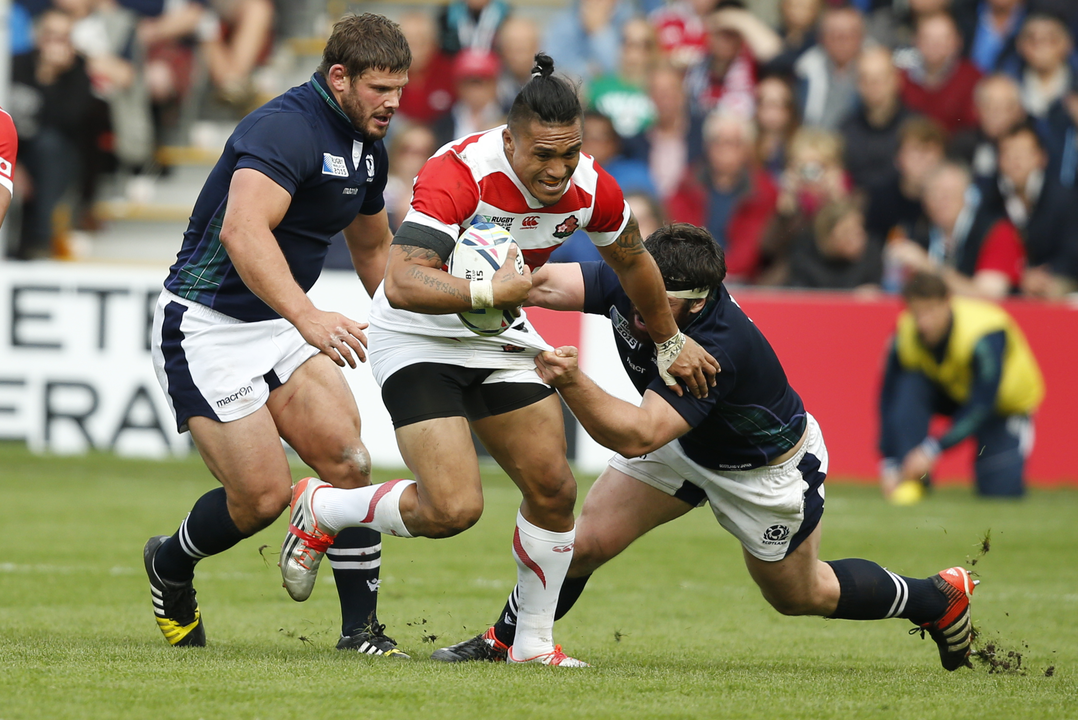Tag: rugby

Well folks, let's dive into the wild, thrilling world of rugby in the good ol' US of A! It's no secret that rugby isn't quite the superstar sport over here, but it's definitely donning its cleats and gearing up for the big leagues. With an increasing number of American kids swapping their baseball bats for rugby balls, we're seeing a sports revolution on our hands! From coast-to-coast, more clubs, leagues, and universities are embracing this exciting, rough-and-tumble game. So, while it may not hold the crown just yet, rugby is stepping up to the plate and swinging for the fences! (Read More)

Alright folks, let's dive into the age-old debate - which sport is more dangerous, rugby or football? After a lot of research, it seems both sports have their fair share of bumps and bruises. But rugby, with its constant action and lack of protective gear, might take the cake here. However, don't be fooled, football with its high-speed collisions, isn't exactly a walk in the park either. So, whether you're a fan of the scrum or the scrimmage line, remember to play safe and keep it fun! (Read More)

Absolutely, you can play rugby at 60 kg and 180 cm! Your weight and height won't prevent you from enjoying the game and improving your skills. It's all about the strategy, agility, speed, and understanding of the game rather than just physical size. However, it's important to ensure you're physically fit and trained to prevent injuries. Remember, every player has their unique strengths, regardless of size. (Read More)

As a rugby enthusiast, I've always wondered why rugby is sometimes called football. After some research, I discovered that rugby evolved from early forms of football played in England. Both sports share common origins, which explains the occasional interchangeable use of the term "football." Over time, rugby and soccer have diverged into distinct sports, but the historical connection remains. So, when you hear rugby referred to as football, it's a nod to the sport's roots in the broader family of football games. (Read More)

Rugby players have a unique challenge when it comes to retirement. It is a difficult decision for any athlete to decide when to hang up the cleats. It is even more challenging for rugby players due to the physical nature of the game. The right age for a rugby player to retire depends on several factors including physical health, mental health, and personal goals. Generally, the best time to retire is when a player can no longer compete at their highest level. Players should consider their physical and mental condition to determine if they are still able to perform at the highest level and if they are still enjoying the game. Retirement should also be considered when a player has achieved their personal goals or has new goals they want to pursue. Ultimately, when a rugby player decides to retire is a personal decision that should be based on their individual needs. (Read More)

Rugby players train hard to compete at the highest level. They need to be strong, fast and agile, while also having excellent skills and technique. Training sessions often involve a combination of cardio, strength and agility exercises, as well as drills to improve skill and technique. Rugby players also need to work on their game awareness and decision making, which can be done through watching game footage and participating in simulated scenarios. Recovery is also important in between training sessions, to ensure the players are able to give their best performance on the pitch. (Read More)

Rugby is a great team sport for children to play, but there are safety considerations to take into account. It is important to ensure that young players understand the rules of the game and the proper techniques for tackling and passing. Rugby can be a physical game, so it is important that children wear the right protective equipment such as helmets and padding. Additionally, coaches should emphasize sportsmanship and fair play to ensure that any potential risks are minimized. With proper precautions and a focus on safety, rugby can be a safe and enjoyable sport for your kids. (Read More)

American football is often seen as a derivative of rugby, with some arguing that it is merely a "ripoff" of the original game. However, while the two sports do share some similarities, they also have many differences. While both games involve tackling and running with the ball, American football has distinct rules, such as the forward pass, that separate it from rugby. Additionally, American football has a much more complex scoring system and a larger field size than rugby. Ultimately, American football may have been inspired by rugby, but it stands on its own as an exciting, unique sport. (Read More)

Rugby players train in a variety of ways to prepare for the physical demands of the sport. Strength and conditioning exercises are an important part of a rugby player's training regime, focusing on building muscle and improving agility. Players also participate in drills specific to rugby, such as tackling, rucking and scrummaging. Endurance training is also important in order to prepare players for the physical demands of a match. Finally, players must practice set plays, such as lineouts and mauls, in order to develop their tactical skills. (Read More)

Football and rugby are two popular sports, but they differ in many ways. Football is a team sport played between two teams of 11 players each. The objective is to score goals by kicking or heading the ball into the opposing team’s goal. Rugby is also a team sport, but it is played with 15 players on each side. The objective is to score points by carrying the ball across the opposing team’s goal line or kicking it between the goal posts. Football and rugby also differ in terms of rules and strategies. Football is a game of finesse, while rugby is a game of strength and power. (Read More)



